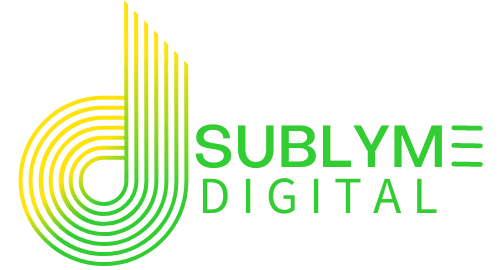Optimize SEO for ChatGPT and Other Large Language Models
You know what? The way we approach SEO is changing. Large language models (LLMs) like ChatGPT are transforming how people search for information and consume content. These AI tools are no longer just assistants—they’ve become key players in how businesses engage with their audiences.
But here’s the thing: creating SEO content for LLMs isn’t the same as traditional SEO. Sure, keywords and structure still matter, but now you also have to think about how these models process and deliver information. It’s a whole new game, and if you’re not optimizing for it, you’re missing out.
In this blog, we’ll explore how to create SEO-optimized content tailored for large language models. From understanding their mechanics to implementing actionable strategies, this guide will help you stay ahead in the evolving digital landscape.
Key Takeaways:
- Large language models (LLMs) like ChatGPT are reshaping content creation and SEO strategies, making it crucial to adapt.
- Optimizing for LLMs involves combining traditional SEO practices with AI-specific techniques, such as prompt engineering and conversational tone.
- High-quality, structured content with natural language and long-tail keywords improves performance in both AI-driven and traditional search engines.
- Voice search optimization and FAQs are essential for aligning with user intent and conversational queries.
- Businesses that tailor their SEO strategies for LLMs can improve visibility, engagement, and overall search rankings.
What Are Large Language Models and Why Do They Matter for SEO?
Let me explain. Large language models like ChatGPT are advanced AI systems trained on massive datasets to understand and generate human-like text. They’re used for everything from answering questions to writing essays, and they’re increasingly shaping how users interact with content online.
For SEO, this means two things:
- Search Behavior is Changing: More people are using conversational queries like “What’s the best way to optimize my website for SEO?” instead of short keywords.
- Content Expectations are Higher: Users expect detailed, well-structured answers that feel natural and human.
If you’re not creating content that aligns with these trends, you’re going to lose visibility—not just in traditional search engines but also in AI-driven platforms.
Optimizing for large language models isn’t just about keywords—it’s about creating content that feels human, conversational, and relevant.

Creating SEO Content for Large Language Models
1. Understand User Intent
Creating content for LLMs starts with understanding what your audience wants. Are they looking for quick answers, in-depth guides, or actionable tips? By aligning your content with user intent, you increase its relevance and engagement.
For example, if someone asks, “How do I optimize my website for voice search?” they’re likely looking for a step-by-step guide. Tailor your content to meet that need.
2. Use Natural Language
LLMs are designed to process conversational language, so your content should feel natural and easy to read. Avoid jargon and overly complex sentences. Instead, write as if you’re having a conversation with your audience.
For instance, instead of saying, “Utilize advanced methodologies for optimizing SEO strategies,” say, “Use simple strategies to improve your SEO.”
3. Focus on Long-Tail Keywords
Long-tail keywords are phrases that mimic how people naturally speak or type. They’re especially important for LLMs, which prioritize conversational queries.
For example, instead of targeting “SEO tips,” use phrases like “How do I improve my website’s SEO rankings?”
4. Structure Your Content Effectively
LLMs love structured content. Use headings, subheadings, bullet points (where appropriate), and short paragraphs to make your content easy to navigate.
Here’s a simple structure to follow:
- Title and meta description
- Introduction that hooks the reader
- Main sections with clear subheadings
- Conclusion with key takeaways and a call-to-action
5. Optimize for Voice Search
Voice search is on the rise, and LLMs are at the heart of it. To optimize for voice search, focus on answering common questions directly. Use a conversational tone and include FAQs to address specific queries.
Advanced Strategies for LLM SEO
Create High-Quality FAQs
FAQs are a goldmine for LLM optimization. They align with conversational queries and provide direct answers to user questions.
For example:
- Question: “What are the benefits of optimizing for large language models?”
- Answer: “Optimizing for LLMs improves your content’s visibility, engagement, and relevance in both AI-driven and traditional search engines.”
Leverage Schema Markup
Schema markup helps search engines and LLMs understand your content better. Use structured data to highlight key elements like FAQs, images, and videos.
Experiment with Prompt Engineering
Prompt engineering isn’t just for developers—it’s a valuable tool for content creators too. By crafting clear and specific prompts, you can guide LLMs to generate better results.
For example: Instead of asking, “What is SEO?” try, “Explain SEO in simple terms for small business owners.”
Mastering ChatGPT Optimization
If you’re looking to dive deeper into how to optimize your content specifically for ChatGPT, check out our comprehensive guide on Mastering ChatGPT Optimization for Businesses. This resource provides actionable tips on leveraging ChatGPT to enhance your digital presence, from crafting effective prompts to tailoring content for AI-driven platforms. Whether you’re new to ChatGPT or looking to refine your strategies, this guide is packed with insights to help you succeed.
We Build Cool
Success Stories
365 Data Centers
Discover how we rapidly rebuilt and optimized a 30-page website for 365 Data Centers, restoring their online presence and managing digital ad campaigns across key regions to drive engagement and growth.
XTECH Football Pads
Discover how we transformed XTECH Football Pads‘ digital presence, boosting their online sales and tripling website traffic through innovative website development and user experience enhancements.
BeEarth Foundation
Discover how we partnered with the BeEarth Foundation to develop a website that aligns with their mission of sustainability and global engagement. Our work has significantly increased their online visibility and engagement, supporting their efforts to promote sustainable development.
We Recycle Solar
Learn how we illuminated digital success for We Recycle Solar by completely redesigning their website to reflect their leadership in the growing solar recycling industry and implementing strategic digital advertising campaigns that enhanced their visibility at key industry events.
Preferred Home Health Care & Nursing Services
Explore how we elevated the digital presence of Preferred Home Health Care & Nursing Services by enhancing their website for better lead generation, building a dedicated site for staff recognition, and optimizing SEO for their location pages.
What Our Clients Say: Elevating Online Success
FAQs:
Answer: LLMs like ChatGPT focus on conversational language and user intent, delivering more natural and human-like responses compared to traditional search engines.
Answer: Focus on natural language, long-tail keywords, and structured content. Additionally, include FAQs and optimize for voice search to align with conversational queries.
Answer: Absolutely! While LLMs prioritize conversational language, traditional SEO practices like keyword optimization, metadata, and backlinks are still crucial.
Answer: Yes, by creating high-quality, user-focused content that aligns with LLM algorithms, you can improve your visibility in AI-driven search results.
Final Thoughts:
Here’s the thing: large language models are here to stay, and they’re reshaping the way we approach SEO. By understanding how these models work and tailoring your content to align with their algorithms, you can stay ahead of the curve.
Remember, the key to success is balance. Combine traditional SEO practices with AI-specific strategies like natural language, long-tail keywords, and voice search optimization. It’s not about replacing the old ways—it’s about evolving with the new.
Let's Build Something Sublyme
Ready to optimize your content for large language models? Contact Sublyme Digital today for expert SEO services that combine traditional strategies with AI-driven innovation. Let’s take your content to the next level!



